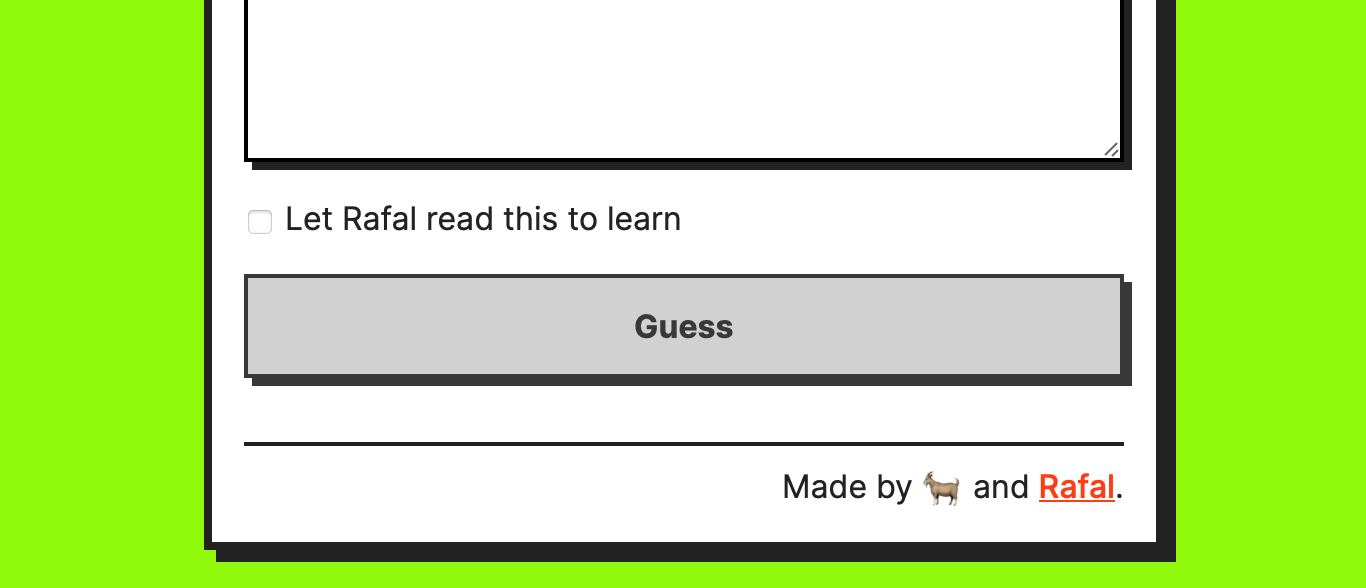Defaults matter!

<5% people opt-in on tip and that's actually pretty cool
Recent week gave us the news about:
What prompted me to write this is some comments trying to justify these decisions by pointing out that anyone can opt out of these changes. They're introduced by default but the user is still in control, just one email away from taking control over their data. I think it's a flawed attitude and I'd like explain quickly, how.
I was trying to explain this concisely with a meaty metaphor, but the numbers do a better job here:
$510,000,000
This is how much Mozilla was paid by Google in 2022 to keep it as their default search engine. That's ca. 85% of their total revenue in 2022 when the partnership was extended for another 3 years (down from 90% in 2020).
Sources: Mozilla raked in almost $600 million in 2022, thanks to Google | TechSpot , Mozilla earned close to $600 million in 2022 - gHacks Tech News, Google Is Paying Mozilla $450M Per Year To Be The Default Search Engine On Firefox
$18,000,000,000 – $20,000,000,000
This is how much Google paid Apple per annum to keep their search engine as the default on iOS. That is ca. 14-16% of Apple's annual operating profits.
$26,300,000,000
And that's how much Google spent overall to be the default search engine on various platforms. Think about this for a second: at least 3/4 of that sum goes to 2 companies presenting themselves as privacy-first.
You can always opt out. This number is completely insignificant.
Sources: Inside Google’s Plan to Stop Apple From Getting Serious About Search - The New York Times, Google Pays $18 Billion Per Year to Be the Default Search Engine on Apple Devices | PCMag
95%
That's the number of people who opted out of Facebook tracking when Apple introduced App Tracking Transparency when iOS 14.5 came out in 2021.
But not everyone likes the system, and the strongest objections to App Tracking Transparency have been from Facebook. It says Apple’s new system will make it harder and more expensive for ad networks to easily target customers, which in turn will hurt small businesses that rely on highly targeted ad campaigns.
It's almost amusing to see the amount of verbal gymnastics Facebook used to fight back, ranging from stating that this is just a useless prompt to stating that the change will hurt mainly small businesses (only ca. 5% of their revenue at the time.) It's almost amusing, because these numbers won't reach the general populace who, frankly, don't have time to deal with this shit.

The mural in the London News(corp) office, with the phrase "always sticking up for the little guy". I couldn't decide whether our dystopia would be 1984 or Brave New World flavoured, but it turns out it was just ice cream.
It's also a trap. I don't want you to leave this post amused. I want you to leave this post angry. Angry and informed (not angry and and eager to interact with a brand experience through elevated levels of dopamine making you wanna click on stuff.)
Advertising relies on consent by default, largely because it's useless, or rather -- meant to extract value from you. Behavioural targeting (i.e. the one relying on user tracking) generates much higher CPMs at the cost of your privacy. If you ever worked in an ad exchange you know that no one really knows what happens to your data during an auction (think OpenRTB, or VAST chains).
Then, your phone or your web browser are, at least in theory, some of the most intimate spaces you interact with. Now, think about the real life situations involving privacy, fear and implied consent. How do we treat those situations and how do we call them?
What to do:
- Complain and shame businesses acting this way. There is a reason shame exists and this is the type of situations where it should be used.
- Don't rely on opt-out by default as a leverage/sneaky way of convincing people to use a feature. It's not only unethical but also mostly useless.
- Treat user data as burden and user opt-in as an act of trust.
Thanks for reading, see you tomorrow!
 Did you enjoy reading this article? Consider
Did you enjoy reading this article? Consider 
